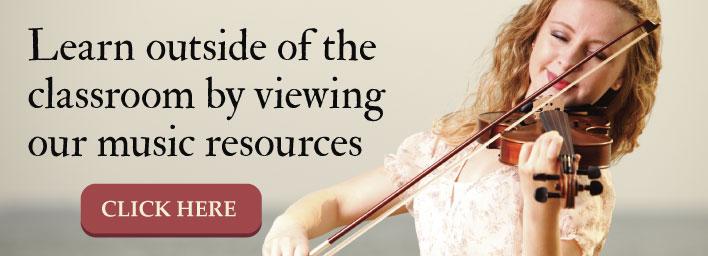4 Myths About Learning An Instrument As An Adult

Have you ever wished that you could learn to play an instrument? Maybe you regret never really giving it a shot when you were a kid, and now you think that you’re too old to make the attempt?
Many adults have the desire to learn to play an instrument, but mistakenly think that the time has passed. They accept the misconception that it’s difficult to become beginner music students because so many studies emphasize the best time to learn music is when you’re a child. However, that’s a myth. Adult learning might present a few more difficulties, but it in no way prevents you from acquiring a certain skill. These myths are common barriers that discourage adults, but as you will see, they shouldn’t hinder you from achieving your goal of performing music.
Myth #1: Adults can’t learn to play music because their cognitive connections are already set.
Totally false. While it is possible (and easier) for your cognitive functions to forge new paths during childhood, that doesn’t mean that you can’t learn to play music as an adult. In fact, because of your life experiences, you’re able to bring all of that information to the process. According to researchers, music stimulates almost every area of the brain, especially those associated with memory. When used as melodic intonation therapy, it has the power to heal and compensate for damaged areas in the brain. So, don’t think that just because you’re an adult that you can’t learn music.
Myth #2: It’s too hard to become a beginner music students as an adult.
Again, this myth is completely incorrect. Adult learning is often more productive than being compelled to learn to play music as a child. It’s entirely natural when you are younger to rebel against certain tasks, but as an adult, you are choosing to pursue music as a goal, and you’ve developed the self-discipline to stay the course.
Moreover, you get to choose which instrument to play. For a variety of reasons, children are often constrained to make a particular choice of instrument, which can place barriers in the way of training. However, as an adult, you make your own decisions, and by picking an instrument that you’ve always wanted to play, you add the important element of desire to your training.
Myth #3: It’s too hard to schedule training into my busy day.
Actually, with adult learning, you have a number of incredible training options available. Certainly you can arrange for private instruction, and there are many options, but you can also explore online training that allows you to work at your own pace. If you think that regular training with a qualified instructor will work better for you, these resources can help you find an educator in your areas: The American String Teachers Association’s “find a teacher” service, and Music Teachers Directory allows you to search for instructors according to instrument and location.
Likewise, if you think that an online program, or a self-training curriculum will work better for your schedule and your learning style, there are a number of free resources available. Consider these options, or search for instructional YouTube videos concerning your instrument of choice:
- Udemy—this comprehensive online platform has music courses with renowned instructors for around $20, and you can see ratings as well as the scope of the course before purchasing.
- Alison—this site has tons of free courses available for beginner music students. It is very connected to social media, so the sign-in process is easy and fast.
- Universities—a number of universities offer music courses through their online education department.
- Instrument Specifics—depending on the instrument you want to learn to play, there are hundreds of websites and mobile apps that deliver quality instruction for free.
Myth #4: It will make my life more hectic.
This myth may seem sensible, but actually, learning music as an adult can help you reduce the stress in your life and give you an effective method for a mental workout that can enhance other areas of life. Studies have shown that listening and playing music reduces stress and has the ability to release dopamine, the chemical responsible for a number of positive benefits to the body. It helps a number of functions including increasing your mental focus and improving sleep patterns.
In fact, there are tons of studies that prove the regenerating power of music, as related to cognitive health and the effect it can have on improving your mood.
If you’re an adult who has been hesitating to take the plunge and explore music training, don’t let these myths discourage you. Beginner music students are all in the same boat, but as an adult learner, you can make measured strides and develop a skill that will benefit you for the rest of your life.


